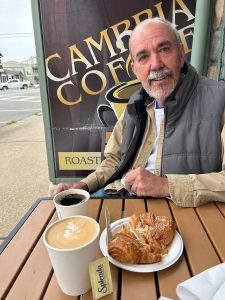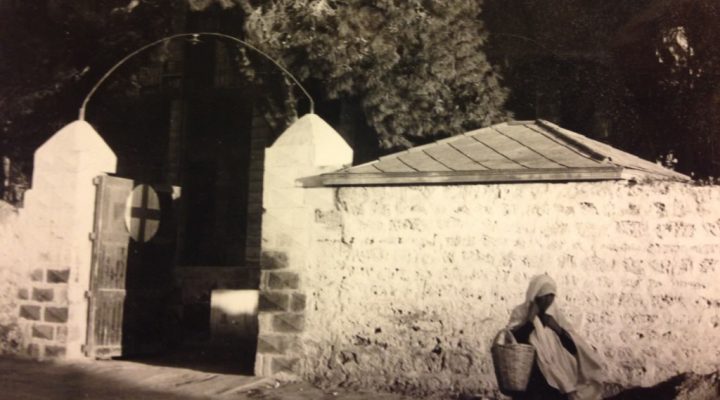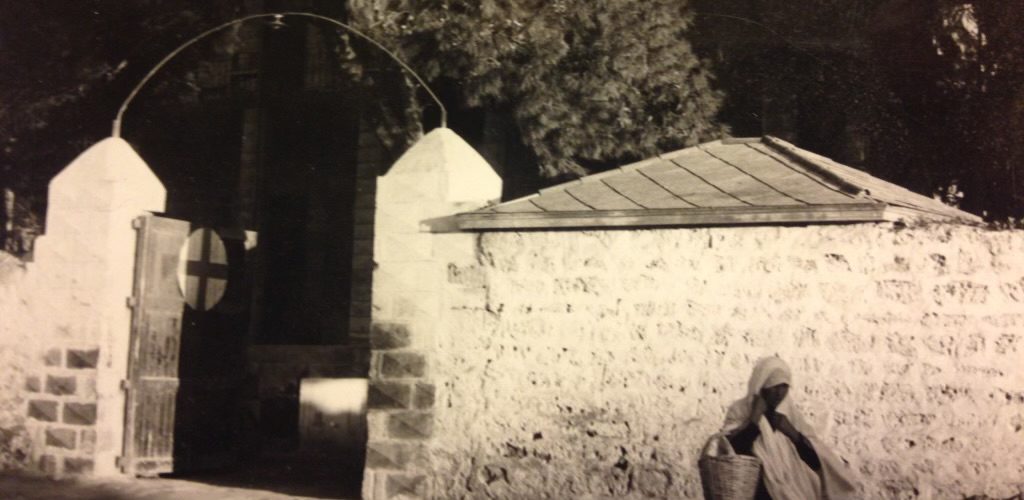When I got in the taxi in Gaza, I asked the driver (in Arabic) to take me to the Ahli Arab (Arab Family) Hospital.
“Where?” he asked.
After we had that exchange a couple of times, I just said, “Go straight here …” I began giving him directions and we soon arrived at the front gate of the hospital. When we got there, he said, “El Ma’madaani (the Baptist)! Why didn’t you say this is where you wanted to go?”

Paul Lawrence
I don’t remember the exact year this incident happened, but it had stopped being the Baptist Hospital in 1982 and I figured the taxi driver had not been born when the name was changed.
The medical work in Gaza that became “the Baptist” was begun there in the late 19th century by the Anglican Church Mission Society of England. They eventually named it the Sterling Memorial Hospital after the first medical director. In 1954, the Southern Baptist Foreign Mission Board took over administration of the hospital and changed the name to The Baptist Hospital. Southern Baptist doctors and nurses came to staff the hospital. In addition to the American staff, nurses from Egypt and Lebanon came to help. A Baptist church was started, and a pastor came from Egypt to be the first pastor of the church.
During the Six Day War in June 1967, the Baptist Hospital stayed open serving the people of Gaza through the sacrificial work of Baptist doctors and nurses, the nurses from Lebanon and Egypt and local staff. In addition to treating the sick and injured, the building and grounds provided shelter for those fleeing the violence. The people of the church gave out food to more than 500 people in need every day.
“During the Six Day War in June 1967, the Baptist Hospital stayed open serving the people of Gaza.”
The hospital continued to operate after the occupation of Gaza during times of relative peace and during times of conflict. In addition to American doctors and nurses appointed by the FMB, medical staff included Palestinians educated in Egypt or elsewhere.
The Egyptians and Lebanese left after the war. The Baptist School of Allied Health Science had been established in the 1950s to prepare nurses to work at the hospital. As staff was needed and teachers were available programs in lab technology, X-ray and physical therapy were taught.
In the early 1980s with inflation running over 100%, it became necessary for the FMB to relinquish the hospital. So, on Jan. 1, 1982, the hospital was returned to the Anglican Church under the auspices of the Anglican Bishop in Jerusalem and the name was changed to the Ahli Arab Hospital. Some of the Baptist medical personnel continued to work at the hospital for several years. The School of Allied Health Sciences operated as an independent institution next door to the hospital until 1993.
I’ve been asked to reflect on the enduring impact of the Baptist Hospital in Gaza. I went to Gaza with my wife and children in 1985 to teach nursing in the Baptist School of Allied Health Science. Harriet and I lived in Gaza until 2003 and then in the Jerusalem-Bethlehem area until our retirement at the end of 2015, traveling in and out of Gaza.

A vintage photo of medical staff with a patient at the former Baptist Hospital in Gaza.
The fact that it is still known locally as El Ma’madaani 40 years after the name changed indicates it was well respected. That respect was because of the excellent care people received at the hospital.
In the years we were in Gaza, we often encountered people who told us “my mother,” “my uncle” or other relative had been a patient at El Ma’madaani. They would go on to tell us of the excellent care they had received. I don’t recall ever hearing an angry story. Of course, not every story had a “happy ending,” but people felt they or their family member had gotten the best care available. For many years, the Baptist Hospital set the standard for excellence in care in Gaza.
That standard has been maintained by the graduates of the School of Allied Health Science. We started with the best Gaza had to offer. For example, in 1990, we had 1,000 applicants for 16 places for the class of 1993. Those graduates and those who went before them have gone on to become leaders in health care and related fields in Gaza and elsewhere. Many have earned master’s degrees and Ph.D.s. We are proud of what they have done and are doing to promote that standard of excellence.
“We are proud of what they have done and are doing to promote that standard of excellence.”
Another lasting impact that is less tangible, but just as real, is the compassion people felt when they came to the Baptist Hospital. Many may not have understood what it was, but we know it was the love of Christ operating in the lives of the believers.
In 2002, following another humanitarian crisis caused by the conflict, we had 100 volunteers from Baptist churches who came over several months to help distribute food in Gaza and the West Bank. Over and over again we were asked by Palestinians the question. “Why would American Christians spend their own money to come to Gaza to help Palestinian Muslims?”
We answered then, as I’m sure the staff of the Baptist Hospital would have answered, “The love of Christ compels us.”

A paiiting depciting the exterior of the former Baptist Hospital in Gaza by a local artist, Nihad.
I salute those who went before us. Their sacrifice did have a lasting impact on the people of Gaza. I also believe the people of Gaza have made a lasting impact on Southern Baptists.
I had the privilege of attending the Baptist Medical/Dental Fellowship and Baptist Nursing Fellowship meeting during our first state-side assignment in the late 1980s. After one of the group sessions, someone asked that everyone who had been a short-term volunteer or a longer-term worker at the Baptist Hospital in Gaza come down for a group picture. There were more than 40 of us there who had worked in Gaza.
All those medical professionals who served during the years of the Baptist Hospital and the hundreds of Southern Baptists who have had the privilege of serving Jesus by serving Palestinians in Gaza since then have certainly been changed forever. You can’t sit on their floor, drink their tea and hear their stories and not go away a different person.
Related article:
Gaza hospital hit by airstrike was run by Baptists for three decades


